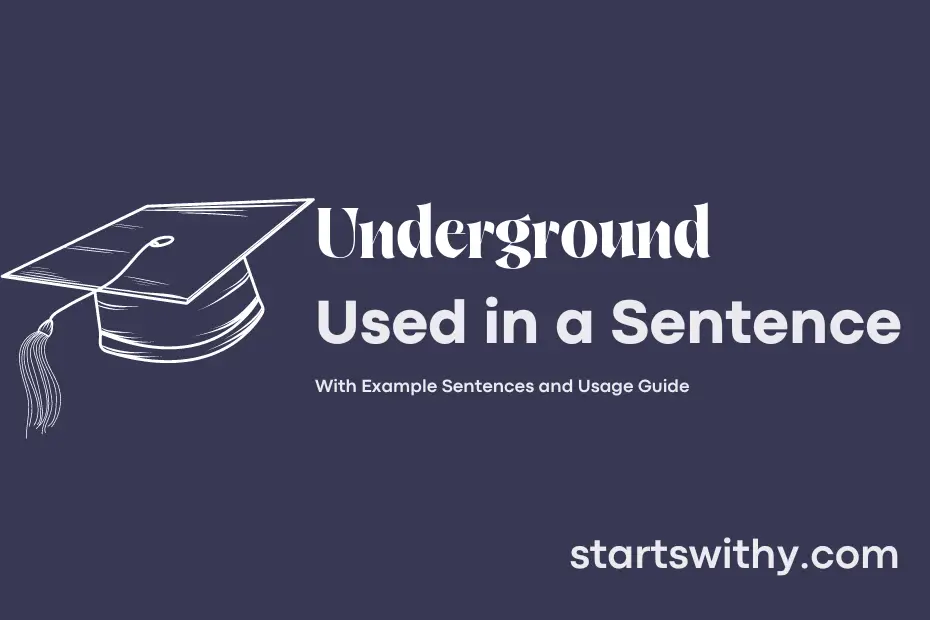Have you ever wondered what “underground” means? In simple terms, it refers to something that is below the surface of the ground or hidden from view.
When something is described as “underground,” it often implies that it is secret, unseen, or operates outside of mainstream society. This term is commonly used in reference to music, movements, or activities that are outside of the popular or mainstream consciousness.
7 Examples Of Underground Used In a Sentence For Kids
- The ants live underground in their cozy nest.
- The subway train runs underground through tunnels.
- The roots of plants grow underground in the soil.
- A mole can dig underground tunnels very quickly.
- Some animals like to burrow underground to stay safe.
- People can find hidden treasure underground.
- The earthworms squirm underground to find food.
14 Sentences with Underground Examples
- Underground parties are becoming popular among college students in India.
- Many college students in India use underground websites to download study materials.
- The college students organized an underground music festival in a hidden location.
- Campus authorities cracked down on the underground gambling ring run by students.
- Some students use underground tunnels to sneak into restricted areas of the campus.
- The college is known for its underground graffiti culture, with students creating art in secret locations.
- A group of students formed an underground book club to discuss banned literature.
- The college has a secret underground library known only to a select few students.
- Students have been exploring the city’s underground tunnels as part of an urban exploration club.
- The college is rumored to have underground parties hidden in the basement of the dormitory.
- A group of students started an underground podcast discussing controversial topics on campus.
- The annual treasure hunt competition involves finding clues hidden in the underground tunnels.
- Some students have set up an underground marketplace for buying and selling second-hand goods.
- The college campus has a mysterious underground legend about a hidden treasure buried beneath the main building.
How To Use Underground in Sentences?
Underground can be used as an adjective, adverb, or noun in a sentence. When using Underground as an adjective, it describes something that is located, occurring, or utilizing operations beneath the surface of the ground or in secret. For example, “The rebels had an underground hideout to plan their next move.”
Underground can also be used as an adverb to describe an action or process carried out secretly or not openly acknowledged. For instance, “She worked underground to gather information from the enemy.”
As a noun, Underground refers to a subterranean space, such as a transportation system, movements, or organizations that operate secretly or illegally. For example, “The workers commute using the underground because it’s faster.”
To properly use Underground in a sentence, identify the context in which it fits best – as an adjective, adverb, or noun. Remember to use it before the noun it describes when used as an adjective, after the verb it modifies when used as an adverb, and as the subject or object of the sentence when used as a noun. Practicing using Underground in sentences will help you become more comfortable with its different meanings and how to fit it into your writing effectively.
Conclusion
In conclusion, underground sentences refer to statements that may have a hidden or secretive meaning, often requiring careful analysis to fully uncover their intent. Whether in literary works, coded messages, or secret communications, underground sentences can offer intrigue and challenge to readers and decipherers alike. These sentences can add depth and complexity to a piece of writing, engaging audiences with their layers of significance and underlying messages.
By understanding the nuances of underground sentences, readers can appreciate the creativity and ingenuity involved in crafting such cryptic statements. The art of decoding these covert expressions adds an element of mystery and intrigue to the reading experience, inviting individuals to delve deeper into the text to uncover its hidden meanings.



